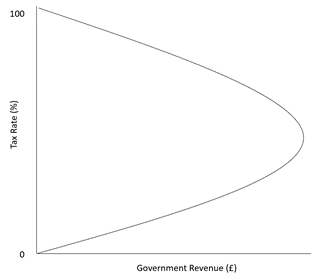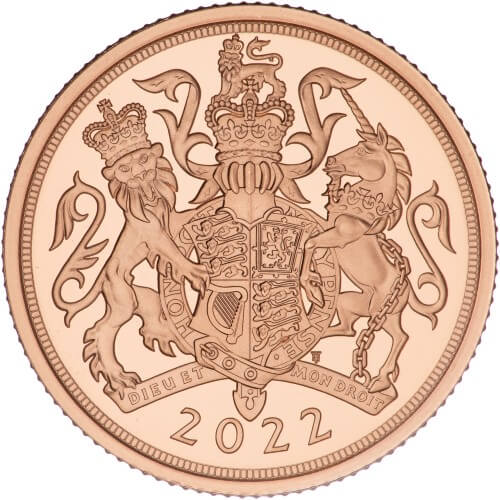Investments for Millennials – Our Tips
Synopsis
The old cliché of millennials being spendthrift with money is well known in today’s world. Avocado on toast, artisan coffee and instagram-perfect holidays seem to be the stereotype items that millennials spend their money on, but is this sweeping generalisation fair? One of our own millennials at Chards tries to find out.
Millennials are the generation between "Generation X" and "Generation Z" and are typically those born between the early 1980s and the late 1990s, with a majority of organisations pinning this generation down as those born between 1981 and 1996.
There seems to be a focus within the millennial generation to achieve a position to clear debt such as mortgages and car loans and this can come before putting aside money for investment opportunities or retirement plans. However, there are plenty of options for investment opportunities – one just needs to do their research!

A Typical Millennial Portfolio
This may sound familiar:
- Unpayable student debt offering up to 9% annual losses (assuming you're employed)
- Coffee bean subscription to top up your losses by 5%
- The perfect city break holiday offering a -100% gain on investment but giving a handsome boost to your Instagram portfolio
- Life savings invested in bitcoin offering a return of -90%
- A £100 brooks leather bike saddle provided a re-sale value of £0 in 5 years.
- 10 pints of craft IPA beer or 10 exotic cocktails on a Friday, Saturday and maybe even a Sunday rounding off annual losses of at least £5000
This tongue in cheek portfolio breakdown is reflected in the eyes of many and stereotyped in the media but is likely far from the truth. We go on to discuss some real misconceptions and incorrect generalisations across this demographic and why we should treat millennials a bit more seriously.
False Assumptions
If the above is a crude portfolio stereotype, then what are the untrue assumptions of this generation?
All too often we hear that young people have no savings at all. However, over two-thirds of millennials are contributing to a retirement plan, but the key difference is the proportion of income saved. A survey has found that in the UK millennials save on average around 9.8% of their incomes for retirement. This is relatively low compared to other countries such as Taiwan (14.8%) and the Netherlands (13.8%). This is understandable given the unfavourable saving environment millennials find themselves in; it is tempting to get caught up in consumerism since so many traditional investment opportunities, such as saving accounts, offer poor returns for the risk involved.
A second myth is that millennials will take risky investment choices spurred on by record low interest rates and cheap credit. In fact the millennial group tends to be more risk-averse than other generations and this may be the reason many hold wealth in bank accounts not knowing where else is "safe" and it's not hard to see why, given bleak economic outlooks and volatile political events all adding to uncertainty. Given this, most millennials recognise that they need to be careful with their wealth which is not what some readers might expect.
With the Bank of England base rate at 0.75%, the incentive to leave money in savings accounts is low, especially when inflation is running at around 2.5% a year. Contrary to mass media reports, many in the millennial generation are well informed and are willing to explore investment opportunities. Millennials are more likely to trust themselves, their peers and their financial professional, with as much as 86% saying they would trust a qualified financial planner and 71% trusting their friends and family. This dumbfounds the observation that millennials engage with social media for investment advice, with only 39% saying they would trust information on investment opportunities from a social media website.
Contrary to the assumption that millennials are a lazy bunch, a BNP Paribas report highlights millennials founded more than double the number of businesses than those over 50 did! That said, the failure rate of millennial start ups is greater than their elders but it does show a thirst for entrepreneurship, be it a little misguided.
As time goes on, millennials will make up a greater proportion of the working population and we will need to overcome these false assumptions. Some population estimates now state there are now more millennials alive than baby boomers, so the choices of the millennial generation will have an increasing impact on economies.
Aspects to Consider
This is not an exhaustive list and is compiled by our own millennials who work in the business. Those who contributed believe these are the important points when researching and preparing to invest your hard earned money.
Existing Debt
Investment can start at many different wealth levels and not surprisingly, the best thing to do before investing is to be able to service any outstanding debt. This should not be an invitation to go all out and devote all income into clearing debt but be comfortable with your monthly outgoings. Everyone’s situation will be different, but with proper budgeting and a sustainable income, a certain amount of money can be devoted to clearing debt and other funds left aside for investment. It is also a wise idea to have cash in case of unforeseen emergencies.
It is sensible to have security and a comfortable life before committing to risky investments. For example, it may be worth securing somewhere nice to live, owning a car if needed and having a few months salary in the bank before investing in risky options such as cryptocurrency or stocks.
Investment Timeframes
Investing wealth into a venture that will see a return in 20 years will not be sensible if you find you need the money for a deposit for a house or car within a couple of years. In this case, it's safer to hold onto the money either in the form of currency or precious metals. Millennials will have time on their side, which gives ample opportunity for medium and long term investments.
Social Responsibility
Increasingly, issues such as ethical, environmental and social concerns are playing part in the investment decisions of millennials. They are more likely to invest in something if it aligns to their interests, with over 75% of millennials wanting their investment choices to reflect the ethical practices.
"Experts"
Any investment information should be properly scrutinised. There is a lot of dodgy advice around investing and it illustrates the point that potential investors need to do their homework, all too many are caught out and the most recent example is bitcoin which saw a lot of first time investors lose a lot of money. The saying "if an opportunity looks too good to be true, then it probably is" is a cliché for good reason! The internet has allowed personal research and education which can lead to better returns but carries significant risk if you are naive and jump on the bandwagon. The internet provides a fantastic resource for information, but extreme care needs to be taken if you are going to get serious about investing. Affiliate sites and unscrupulous marketing tactics can be used to catch your attention and lead to an unwise or otherwise expensive investment.
Human Capital
This can be investing in an individual's skills, such as further education or mastering a new trade which can offer more opportunities in the future. This does not have a direct financial gain at the time but is likely to steer you well with computer coding and foreign languages being fine choices. Educating yourself beyond mere financial gain can also lead to a more satisfactory and wholesome experience for your working life.
Family and Community
Money aside, it is more important than ever to acknowledge family and community. As the digital market erodes personal connections, consumerism replaces local communities as people associate more with online communities who wear the same clothes, drive the same cars, listen to the same music than they do with real people! Investing your time in yourself and your communities helps to keep the fabric of society strong which can lead to sustainable trade and prosperity.The internet deserves a mention as an amazing tool to allow people to connect across the world with relative ease; this has delivered phenomenal economic growth and empowered many to start their own companies, even to solely trade online without a premises. This improvement is a double-edged sword as it is possible to go about daily life without ever meeting real people. It is viable to succeed like this, but for the millennials questioned in the writing of this blog the digital connection does not amount to a real "face to face" human conversation. Often the word of mouth and a personal approach presents more opportunities, rewards and prospects to grow wealth. It is easy to see why isolationists will not likely achieve the same degree of wealth, as relationships can be quite superficial, temporary and easily severed.
How to Tell if an Asset is Suitable

Examples of Investments and "Advice"
So what investments are available to millennials? Here are some points of information to get you thinking:
- Keep to the ethos of buying when prices are low and selling when they are high, this nugget of advice remains as poignant as ever!
- Be careful with assets that run the risk of becoming overheated through media spin and watch our for bubbles forming - the most recent example here was Bitcoin's fall from grace.
- Generally, stocks are avoided in late stage capitalist cycles with bonds and precious metals taking up larger percentages of an investment portfolio. Be sure to research the market and make up your own mind where we are in the "boom and bust" cycle.
- If you're going to go into stocks consider passive tracker funds as these can provide better returns once management fees and performance are factored in. Active funds shouldn't be disregarded but if you are not going to be keeping on top of your game and maintaining your portfolio regularly the passive funds are likely a better option.
- A final point is to be aware that if an asset or any other form of investment is being discussed in the mass media or popular forums then you are already too late, and it may be worth your time scouting for other under-priced investment choices.
We were curious to how some of our own millennials at the office are or would invest. Here are the results:

Corey
Precious metals, foreign currency (mostly euros), books, learning a foreign language. Medium/long term: stocks in mining/oil/utility companies, classic cars, real estate.
Ian
Property, green and renewable stocks and bonds, passive tracker funds, CGT exempt gold, cryptocurrency, replanting forests, wellness studio mainly with yin yoga, pilates and meditation, learning SQL and PHP coding languages.


Adam
Stocks in banking/oil companies, physical music formats such as vinyl and CDs, music equipment, critical thinking literature, DIY zines/photobooks, analogue film equipment, gym to keep fit, books and current affairs literature, learn/practice DIY culture and ethics.
Amy
Pizza bagels, dog t-shirts, scented tissues, coffee scented air fresheners, pogo sticks, dog dating app.


Emily
Sports memorabilia, film equipment such as antique cameras, literature.
The variation demonstrated within our marketing team is likely a reflection of this demographic as some people will be intersted in traditional and profitable investments whilst others will perhaps not be...
Discussion on Lack of Investment Interest
One reason for millennials holding all their money in bank accounts is that they do not always realise what they can do with it often due to a lack of interest in the topic. Why is it in Britain that many are put off or left uninterested by investments and money when we have so much information at our fingertips?
A lack of education in the history of barter and the emergence of money leaves many without a point of contrast. There seems to be a lack of appreciation of what money actually is. The benefit money brought to humanity cannot be understated but remains unacknowledged by many, with a perception that "money is the root of all evil" being common. Remove money from the economy and we are left with the situation of barter, a horrifically inefficient system of exchange. In the modern world, some economies have been forced into barter by a collapse of money. Countries such as Zimbabwe, Venezuela, Russia, Yugoslavia and the Soviet Union have experienced a barter economy at some point in the last 30 years. These economies became a complete mirror opposite to a world of relative comfort and enjoyment when citizens were forced to barter for goods and services. Money provides the medium of exchange that makes economic transactions so much simpler and should not be confused with the extraction of wealth. The contrast with those unfortunate enough to be forced to use a barter system shows us how money enables us to bring more control of our lives and enable us to grow our wealth.
The negative stories published by the press do not provide a balanced view to the corruption and failure of most financial institutions. This results in a lack of faith in banking systems and the general established order which can then morph into rebellion and protest for change. It seems odd that the target for this discontent would be money itself as opposed to those who allowed the economy to decline. Thus, it can become "trendy" to not have a plan, dismiss the importance of money, be frivolous and live for the here and now.
This can lead onto the view that capitalism is broken when, in reality, it isn't. It is the greed of human nature that distorts markets and drives inequality. Following this, and perhaps without much deep thought, there is a growing belief that greater levels of socialism can save us from ourselves. As human nature is injected, all economic systems ultimately drive a certain level of inequality, subjugation and suffering instead of desired outcomes of a society rich in altruism, fairness and joy.
Unrealistic life expectations play a huge part in the general malaise of many young people with many unable to set financial goals which are achievable or satisfying. Mortgage deposits in a big city are a fundamental issue as some jobs are available only in a tight-knitted elite in a city. What a lot of people do not realise is they actually have no right to a job; never mind a job they really enjoy. It is a choice to pursue their dream job but this choice, as with all choices, comes with terms such as unfavourable mortgage terms, expensive transportation and an even more expensive social life. On the flip side to this those happy to take a job in provincial towns and cities can find themselves more at financial ease, but without the dream job. There is always a trade-off and unfortunately the market has provided a belief for many that we can have all our cake and eat it. Setting realistic achievable goals are so important to maintaining an interest in your personal finances and your life in general. The difficulty here is education systems can leave a lot of young people somewhat naive to the realities of finance and investing. The added issue of live fast, die young does not leave much space for future financial plans.
These expectations extend further into life into other areas such as health, fitness, toasty warm detached houses, air travel, car ownership, human freedoms, happiness, the perfect relationship, and so on. We should strive to improve but we should also realise unrealistic expectations drive dissatisfaction and then eventually a collapse of interest. We should empower people to learn through whatever means necessary and not leave it to young people to figure it out, as many are ill equipped to do so.
The overall conclusion of this is a lack of understanding, unrealistic goals and a feeling that it is "us against them the establishment" is generating a lack of interest in investing.
Our Words of Wisdom
We can offer basic investment information for those who are interested, and we like to keep any information we give as simple as possible. The discussion above is an ideal primer for those who have never invested before and want to know more about making informed decisions. It goes without saying that you should look further afield even beyond our website to equip you with the information you need to begin investing.
Having said that, we are a coin and bullion dealership, so it should not come as a surprise to anyone that we advocate precious metals and coins as investment assets! Precious metals can be surprisingly affordable despite the expensive and “out of reach” reputation they have. For example, gold coins can be purchased for as little as from £1,965.53. Silver coins are extremely competitive and prices are from £27.82. Precious metals are easily obtainable and make an excellent addition to a diverse investment portfolio. For millennials looking for their first investment opportunity, precious metals offer an excellent way to start investing. Gold advocates such as Jim Rickards recommend around 10-20% of a portfolio should be precious metals, with the percentage fluctuating with current events.
The most important thing though is to thoroughly research your options and know what type of asset you want to invest in and set timely exit points. Educate yourself fully on history, the affairs of money and the impact of policymakers on current affairs. An informed decision should produce the best chance of returns, satisfaction and probably happiness.
Further Reading
You may be interested in exploring more articles in our precious metal and coin news section of the website.
For more precious metal investment guides, please see our gold and silver information and advice pages.
Sources: Barclays/RFi Group, Natixis, BNP Paribas
With assistance from the Bullion Manager, Ian Davis
Related Blog Articles
This guide and its content is copyright of Chard (1964) Ltd - © Chard (1964) Ltd 2024. All rights reserved. Any redistribution or reproduction of part or all of the contents in any form is prohibited.
We are not financial advisers and we would always recommend that you consult with one prior to making any investment decision.
You can read more about copyright or our advice disclaimer on these links.





















